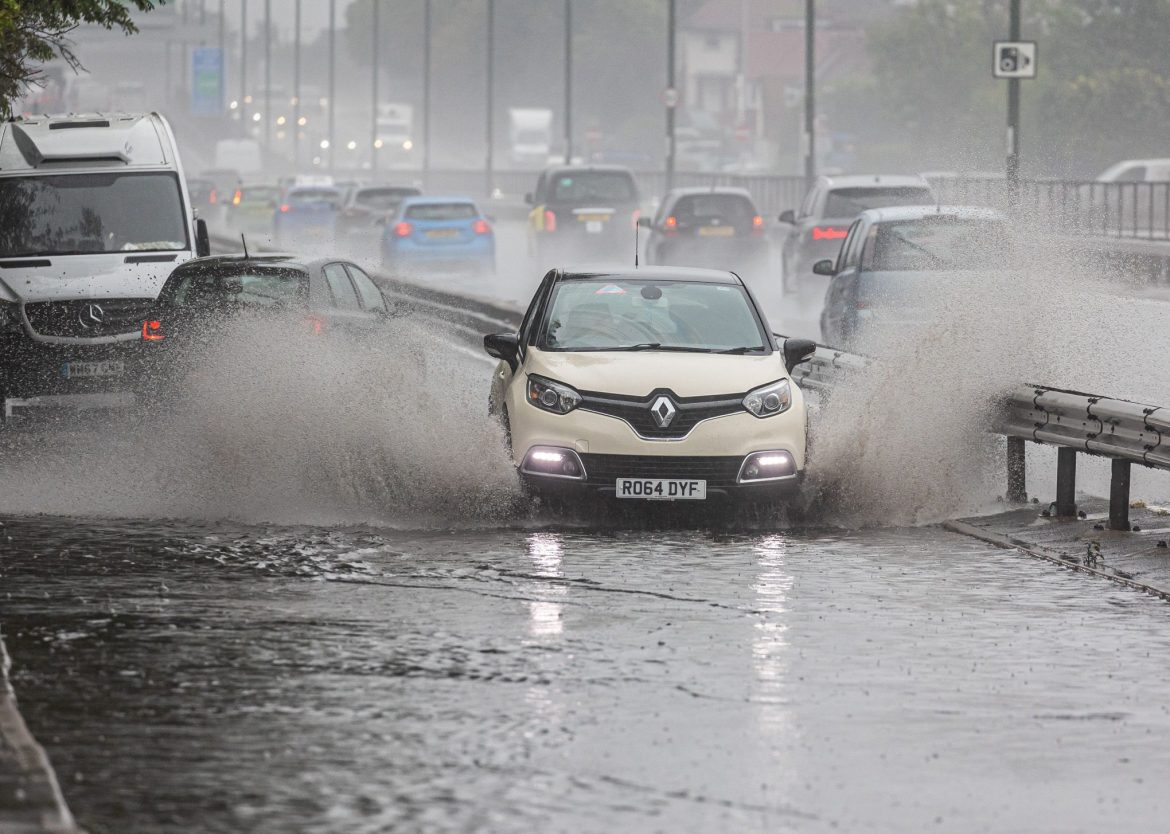Britain’s rising temperatures and increasing rainfall are making flooding more frequent across the UK and putting more than 10,000 homes and businesses in Kingston at risk, according to the Environment Agency (EA).
Last week (April 4) , a first-of-its-kind flooding exercise took place in the Kingston Guildhall as part of a wider plan to prepare emergency services and local authorities for the heightened risk of flooding in the future.
Sam Nicholson, EA Flood Advisor, said: “Flash flooding is the top risk in London’s risk register. Boroughs need to be fluent in working together and with other agencies when these events occur. Exercising is a key aspect of preparedness.”
The exercise was commissioned by the London Flood Working Group to prepare emergency services and local authorities in Kingston, Merton, Wandsworth, Richmond, Sutton and Croydon for large-scale floods across borough boundaries.
Recent climate change predictions confirm that the UK will experience wetter winters and drier summers, making intense rainfall and flooding more likely, including in South West London.
The Met Office has recorded a clear trend towards warmer weather in the UK in a temperature series starting in 1884.
Britain’s annual mean temperature has increased by 18.3% since recordings began. This means the average temperature has risen by 1.55ºC, from 8.48ºC in 1884 to 10.03ºC in 2022.
Although the data reflects some natural annual variations in temperature, hotter weather is becoming more frequent. The most recent decade, from 2013 to 2022, was the warmest ten-year period since 1884. It was 0.24ºC warmer than the decade before and 1.26ºC warmer than the same decade of the previous century.
Additionally, the ten warmest years on record all occurred after 2000, as well as four of the five hottest summers.
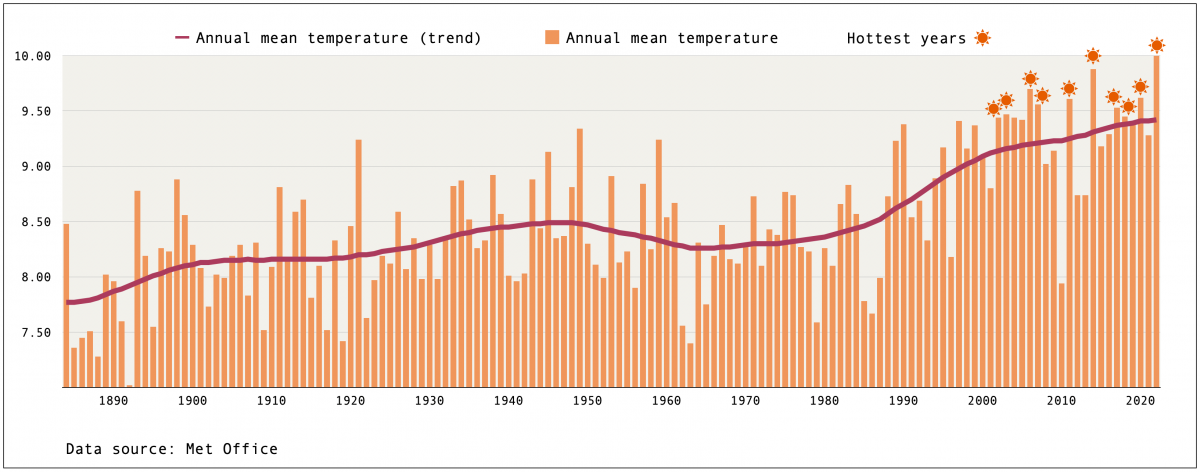
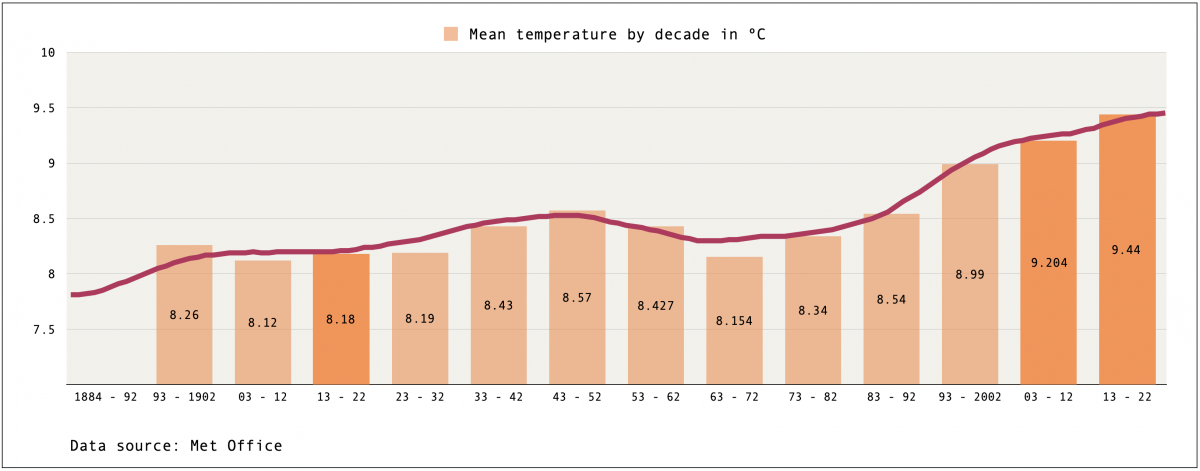
According to Nicholson, the UK is already seeing more extreme weather with an increase in flooding, coastal erosion and landslips. “Climate change is happening now,” he said.
This changing climate heightens the flood risk in the UK, and Kingston, for two reasons: warmer air can hold more moisture, which increases the chance of more extreme rainfall, and a hotter climate can dry out the land and prevent rainwater from draining away.
There are multiple sources of flooding across the UK. Kingston and neighbouring boroughs have some areas at risk of both flooding from the Thames and flooding from surface water, according to the EA.
Nicholson said: “We know these events are getting more frequent and more extreme, driven by climate change. Holding exercises on these hazards puts response partners in the best place to prepare for and respond to significant flood risks that pose a risk to communities across London.”
Last week’s exercise was staged to assess how effectively relevant partners can work together across boroughs during such events and to prepare response partners for significant thunderstorms and rainfall ahead of summer.
Along with rising temperatures, annual rainfall is becoming more frequent and more intense, adding to the risk of overflowing rivers, flash flooding and surface water flooding in Kingston and across the UK.
The Met Office has recorded a slight increase in heavy rainfall over recent decades but a more significant trend towards a wetter climate in the long term.
The decade from 2012 to 2021 was 4% wetter on average than the decade before, and 11% wetter than the same decade of the previous century. Five of the ten wettest years on record occurred after 2000, as well as some of the wettest winters; in 2014, 2016, 2020 and 2021.
Overall, there has been an 18.4% increase in the mean annual rainfall since the beginning of the rainfall series in 1836.
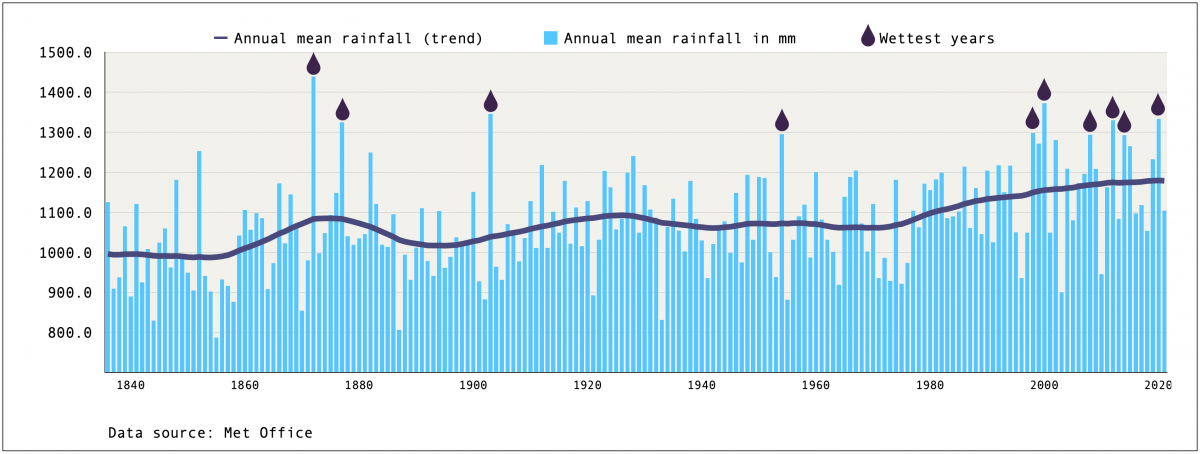
While the frequency of floods and other extreme weather events is expected to increase in the future, about 1.9 million people in the UK currently live in areas already at significant risk of flooding.
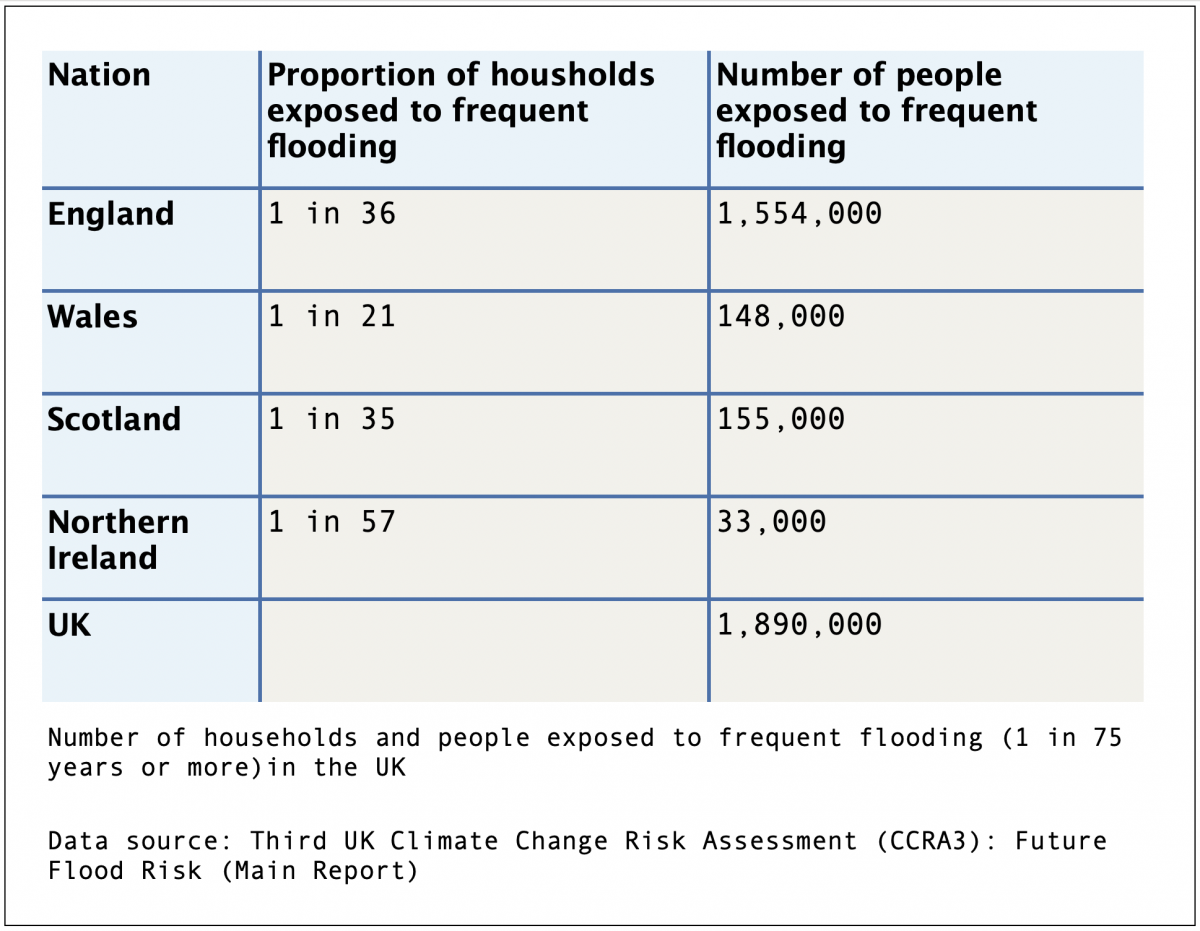
The Environment Agency is one of many partners who work together to make the UK flood resilient and protect people from the impacts of climate change. According to the agency, 60,000 properties are now better protected due to their £5.2bn flood reduction programme, with £3.7bn not yet invested.
Last week’s flooding exercise was the first of four events of this kind, which will cover all of London. The next will take place in Enfield, North East London.
With more than 90 attendees and “excellent commitment from boroughs and partners”, Nicholson called the pilot exercise a success.
Reporter for the Kingston Courier

